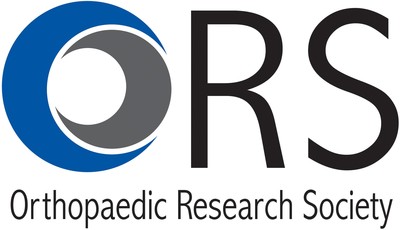|
30.01.2020 23:36:00
|
Pain relief at a price: Naproxen may adversely affect stress fracture risk and repair
ROSEMONT, Ill., Jan. 30, 2020 /PRNewswire/ -- Nonsteroidal anti-inflammatory drugs (NSAIDs) are the most commonly used medication across the world given their ability to reduce pain and inflammation. Daily NSAID users include up to 50% of patients over age 65 and 80% of active duty military personnel, among others. Despite their widespread use, the effects of NSAIDs on the skeleton are still not fully understood.

Evidence presented at the 2019 Annual Meeting of the Orthopaedic Research Society suggests that some NSAIDs may actually have adverse effects on stress fracture risk and repair. Two popular NSAIDs, naproxen (Aleve) and aspirin were compared in a stress fracture study in mice. While both NSAIDs were able to relieve the pain associated with stress fracture, exposure to naproxen had negative effects on bone healing and increased the risk for future stress fracture by reducing bone toughness.
Dr. Ryan Tomlinson of Thomas Jefferson University, senior author of the work commented, "One of the surprising aspects of this study was the relatively limited effect of aspirin, as compared to naproxen, even though the dosage of both drugs was sufficient to relieve stress fracture-related pain. This result highlights the heterogeneity of the NSAID class of medications, and we are currently investigating whether other popular NSAIDs and pain relievers have negative, neutral, or even positive effects on load-induced bone formation and stress fracture repair."
NSAIDs work by blocking the enzymes responsible for production of prostaglandin molecules, which are involved in the inflammatory cascade after tissue injury. Prostaglandin signaling is also necessary for load-induced bone remodeling, which leads to strengthening of bone in areas where it experiences the highest strains. Therefore, if prostaglandin production is decreased by NSAID use, areas of bone undergoing strain may become weaker over time, increasing the risk for new stress fractures. Even more importantly, stress fractures may not heal as well in the presence of certain NSAIDs like naproxen.
"Naproxen is often the recommendation of choice by physicians in orthopaedic clinics. Due to its longer half-life, naproxen has a recommended dosing frequency of 8-12 hours, compared to 4-6 hours for those of aspirin and ibuprofen (Advil)," said Jino Park, lead-author of the study and a medical student at Geisinger Commonwealth School of Medicine. The popularity of naproxen for treatment of orthopaedic pain and inflammation underscores the urgency for continued research on the effects of NSAIDs on skeletal health. In the meantime, those at increased risk for stress fracture may want to reconsider use of naproxen to treat musculoskeletal pain.
Ryan Tomlinson and Jino Park are members of the Orthopaedic Research Society (ORS). The ORS mission is to accelerate musculoskeletal discovery to improve health.
![]() View original content to download multimedia:http://www.prnewswire.com/news-releases/pain-relief-at-a-price-naproxen-may-adversely-affect-stress-fracture-risk-and-repair-300996596.html
View original content to download multimedia:http://www.prnewswire.com/news-releases/pain-relief-at-a-price-naproxen-may-adversely-affect-stress-fracture-risk-and-repair-300996596.html
SOURCE Orthopaedic Research Society
 Der finanzen.at Ratgeber für Aktien!
Der finanzen.at Ratgeber für Aktien!
Wenn Sie mehr über das Thema Aktien erfahren wollen, finden Sie in unserem Ratgeber viele interessante Artikel dazu!
Jetzt informieren!